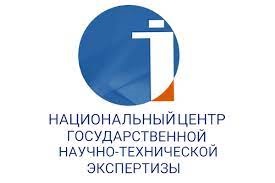SYNERGISTIC POSSIBILITIES OF LANGUAGE RESEARCH
https://doi.org/10.55491/2411-6076-2023-4-3-11
Abstract
As it is known, in accordance with the paradigmatic prism, the formation and development of linguistics as a science for a number of years have traditionally been correlated with comparative-historical, system-structural directions. It should be noted that in recent years, language and speech have been considered in aspects of anthropocentrism. The transition of general scientific evolution to a synergetic platform requires a different methodology for studying linguistic objects. In world linguistics, the methodological possibilities of synergetics are actively used for linguistic research, attempts are being made to interpret language and its sublevels (phonetics, word formation, lexicology, syntax, text, discourse, translation studies, etc.) as a synergetic, self-organizing, complex system in which it is constantly in dynamics. As a result of scientific research, a new direction of linguistics was formed – language synergetics / linguosynergetics. Language synergetics / linguosynergetics is a methodological platform for analyzing and modeling the evolution, development, open nature of the national language, and dynamic processes in it. As a new scientific direction, the synergetics of language allows Kazakh linguistics to develop in accordance with the scientific trends of world linguistics.
The article analyzes the formation of a synergetic trend in world linguistics, the first searches and results in order to substantiate the concept of "language is a synergetic system".
About the Authors
K. S. AldashevaKazakhstan
Almaty
K. A. Kabassova
Kazakhstan
Uralsk
K. B. Koptleuova
Kazakhstan
Aktobe
D. A. Karagoishiyeva
Kazakhstan
Almaty
References
1. Bronnik L.V. (2009). Ponyatie attraktora i lingvisticheskaya teoriya: o trudnostyah integratsii nauchnogo znaniya (na primere diskursivnogo akta) [The concept of an attractor and linguistic theory: on the difficulties of integrating scientific knowledge (on the example of a discursive act)]. Vestnik Chelyabinskogo gosudarstvennogo universiteta. Seriya «Filologiya. İskusstvovedenie» [Bulletin of Chelyabinsk State University. The series "Philology. Art criticism"]. Vol. 3(181). Iss. 39. P. 2126. (in Russian).
2. Budanov V.G. (2010). Sinergetika: mirovozzrenie, metodologiya, nauka [Synergetics: worldview, methodology, science]. Ekonomicheskie strategii [Economic strategies]. Vol. 5(79). P. 48-56. (in Russian).
3. Dombrovan T.I. (2016). Lingvosinergetika – novoe napravlenie filologicheskih studii [Linguosynergetics – a new direction of philological studios. Naukovii vısnik DDPU ımenı I. Franka. Serıya «Fılologıchnı nauki» [Scientific Bulletin of the I. Franko KSPU. Series "Philological Sciences"]. Vol. 6. P. 50-56. (in Russian).
4. Dombrovan T. (2018). An Introduction to Linguistic Synergetics. Cambridge Scholars Publisher. 142 p. (in English).
5. Eiger G.V. (1992). Yazyk i sinergetika [Language and synergetics]. Vısnik Harkıvskogo unıversitetu [Bulletin of Kharkiv University]. Vol. 373. P. 131-137. (in Russian).
6. Enikeeva S.M. (2011). Fraktalnost mikrosistem slovoobrazovaniya (na materiale angliiskogo yazyka) [Fractality of microsystems of word formation (based on the material of the English language)]. Studia Linguistica. Yazyk v logike vremeni: Nasledie, traditsii, perspektivy [Studia Linguistica. Language in the logic of time: Heritage, traditions, perspectives.]. Saint Petersburg. Iss. XX. P. 107-118. (in Russian).
7. Ganeev B.T. (2020). Poryadok i haos v yazyke [Order and chaos in language]. Mir nauki, kultury, obrazovaniya [The world of science, culture, education]. Vol. 6 (85). P. 698-701. (in Russian).
8. German I.A. (2000). Lingvosinergetika [Linguosynergetics]. Barnaul. 168 p. (in Russian).
9. German I.A., Pishalnikova V.A. (1999) Vvedenie v lingvosinergetiku [Introduction to Linguosynergetics]. Barnaul. 129 p. (in Russian)..
10. Gumboldt V. (1985). Yazyk i filosofiya kultury [Language and philosophy of culture]. Moscow. 450 p. (in Russian).
11. Karaulov Y.N. (1988). Evolyutsiya, sistema i obcherusskii yazykovoi tip [Evolution, system and all-Russian language type] // Rusistika segodnya: yazyk: sistema i eё funktsionirovanie [Rusistics today: language: system and its functioning]. Moscow. 221 p. (in Russian).
12. Kuzmina N.A. (2004). Yazyk sinergetiki i sinergetika yazyka [The language of synergetics and the synergetics of language] // Vestnik Omskogo universiteta [Bulletin of Omsk University]. Vol. 3. P. 38-44. (in Russian). Mankeyeva J. (2021). Qazaq sozınıŋ sinergiyasy [Synergy of the Kazakh word]. Almaty. 272 p. (in Kazakh).
13. Milrud R.P., Karamnov A.S. (2011). Fenomen yazykovogo haosa vo vzaimodeistvii germanskih i slavyanskih yazykov [The phenomenon of linguistic chaos in the interaction of Germanic and Slavic languages]. Mejdunarodnyi dialog: vostok-zapad: (kultura, slavyanstvo i ekonomika. Sbornik trudov [International Dialogue: East-West: (culture, Slavs and economics. Collection of works.]. St Nicholas. P. 126-130. (in Russian).
14. Nekorkin V.I. (2012). Lektsii po osnovam teorii kolebanii [Lectures on the basics of the theory of oscillations]. Nizhniy Novgorod. 311 p. (in Russian).
15. Pihtovnikova L.S. (1999). Sinergıya stilyu baiki: nımetska vırşovana baika [Synergy of the fable style: a German poetic fable]. Kharkiv. 220 p. (in Ukrainian).
16. Pihtovnikova L.S. (2016). Pragmastilistika diskursa v svete lingvosinergeticheskoi paradigmy [Pragmastilistics of discourse in the light of the linguosynergetic paradigm]. Kognitsiya, kommunikatsiya, diskurs [Cognition, communication, discourse]. Vol. 13. P. 114-130. (in Russian).
17. Pishalnikova V.A. (2007). Istoriya i teoriya psiholingvistiki [History and theory of psycholinguistics]. Etnopsiholingvistika [Ethnopsycholinguistics]. Iss.2. Moscow. P. 117. (in Russian).
18. Syzdyq R. Tıldık norma jäne onyŋ qalyptanuy (kodifikatsiyasy) [The language norm and its normalization (codification)]. Astana. 230 p. (in Kazakh).
19. Uali N. (2007). Qazaq soz madenietiniŋ teoriyalyq negizderi [Theoretical foundations of Kazakh speech culture]. Almaty. 330 p. (in Kazakh).
Supplementary files
Review
For citations:
Aldasheva K.S., Kabassova K.A., Koptleuova K.B., Karagoishiyeva D.A. SYNERGISTIC POSSIBILITIES OF LANGUAGE RESEARCH. Tiltanym. 2023;92(4):3-11. (In Kazakh) https://doi.org/10.55491/2411-6076-2023-4-3-11
JATS XML

















